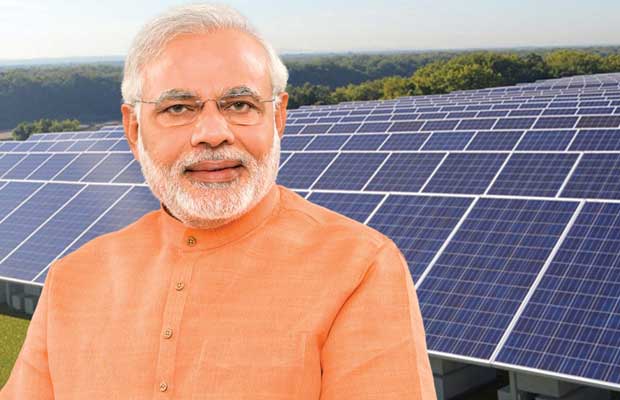Prime Minister Narendra Modi unveiled the ‘Pradhan Mantri Suryodaya Yojana’ on January 22

On January 22, Prime Minister Narendra Modi made a significant announcement, unveiling the ‘Pradhan Mantri Suryodaya Yojana’ (Prime Minister’s Solar Scheme). This ambitious initiative aims to propel India’s solar energy sector forward, bringing about a brighter and more sustainable future for the nation. With a focus on harnessing the abundant solar energy resources available in the country, this scheme is poised to revolutionize India’s energy landscape and contribute to its goals of economic growth, energy security, and environmental sustainability.
Harnessing Solar Power for Rural Empowerment:
India, with its vast geographical expanse and diverse climatic conditions, possesses immense potential for solar energy generation. Recognizing this, the government has been actively promoting solar energy as a key component of its renewable energy strategy. These efforts have resulted in significant growth in the solar energy sector, with India emerging as one of the world’s leading solar energy markets. The Pradhan Mantri Suryodaya Yojana seeks to tackle these challenges head-on and accelerate the adoption of solar energy across the country.
Key Features of the Pradhan Mantri Suryodaya Yojana:
- Solar Power for Agriculture: One of the primary objectives of the scheme is to provide reliable and affordable solar power for agricultural activities. Under the scheme, solar pumps will be distributed to farmers at subsidized rates, enabling them to irrigate their fields using clean and sustainable energy sources. This not only reduces the dependency on traditional energy sources but also contributes to water conservation efforts.
- Rural Electrification: The Pradhan Mantri Suryodaya Yojana aims to enhance rural electrification by deploying standalone solar power plants in remote and inaccessible areas. These solar panel installations will bring electricity to off-grid villages, improving the quality of life and fostering socio-economic development in these regions.
- Capacity Expansion: The scheme envisages a significant expansion of solar power generation capacity across the country. This will be achieved through the installation of utility-scale solar projects, rooftop solar panels, and solar parks. By increasing the share of solar energy in India’s energy mix, the scheme aims to reduce dependence on fossil fuels and mitigate greenhouse gas emissions.
- This will not only boost economic growth but also support the government’s vision of creating a skilled workforce in the renewable energy sector.
- Subsidies and Financial Assistance: The government provides subsidies and financial assistance to eligible beneficiaries for the installation of solar panels, solar pumps, and other solar energy equipment. This helps in making solar energy more affordable and accessible to rural households.
- Monitoring and Evaluation: There are mechanisms in place for monitoring and evaluating the progress and impact of the scheme. This helps in identifying challenges, making necessary course corrections, and ensuring the overall success of the initiative.
Benefits of the Scheme:
The Pradhan Mantri Suryodaya Yojana offers a multitude of benefits for India, its people, and the environment:
- Energy Security: By harnessing solar energy, India can diversify its energy sources and reduce its reliance on imported fossil fuels, thereby enhancing energy security.
- Environmental Sustainability: Solar panel are clean and renewable, emitting no greenhouse gases or air pollutants during operation. Increased solar energy adoption will help mitigate climate change and improve air quality.
- Agricultural Development: PM Suryodaya Yojana focuses on promoting solar-powered irrigation pumps, which can help in improving agricultural productivity by providing reliable and cost-effective irrigation solutions to farmers, especially in areas with irregular power supply.
- Rural Development: Access to reliable electricity can transform rural communities, enabling entrepreneurship, improving healthcare and education services, and enhancing overall quality of life.
- Technological Advancement: The widespread deployment of solar energy infrastructure will drive technological innovation and research in solar technologies, making them more efficient and cost-effective over time.
- Job Creation: The promotion of solar energy under this scheme can lead to the creation of employment opportunities in the solar energy sector, including manufacturing, installation, maintenance, and servicing of solar power systems.
Conclusion:
The Pradhan Mantri Suryodaya Yojana represents a bold and visionary step towards realizing India’s renewable energy potential and achieving its sustainable development goals. By harnessing the power of the sun, India can secure its energy future, drive economic growth, and protect the environment for future generations. As the world transitions towards a low-carbon future, initiatives like this will play a crucial role in shaping a cleaner, greener, and more prosperous world for all.






